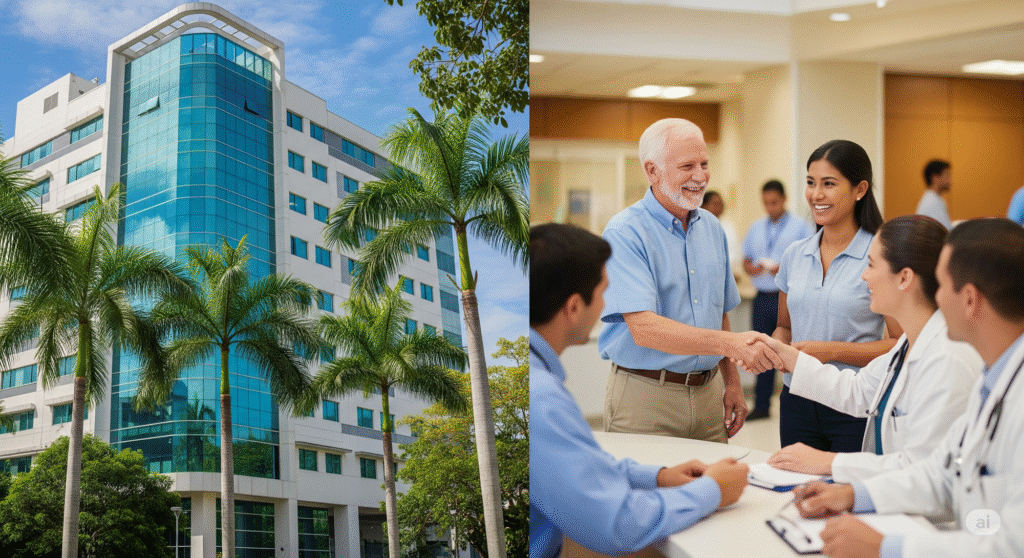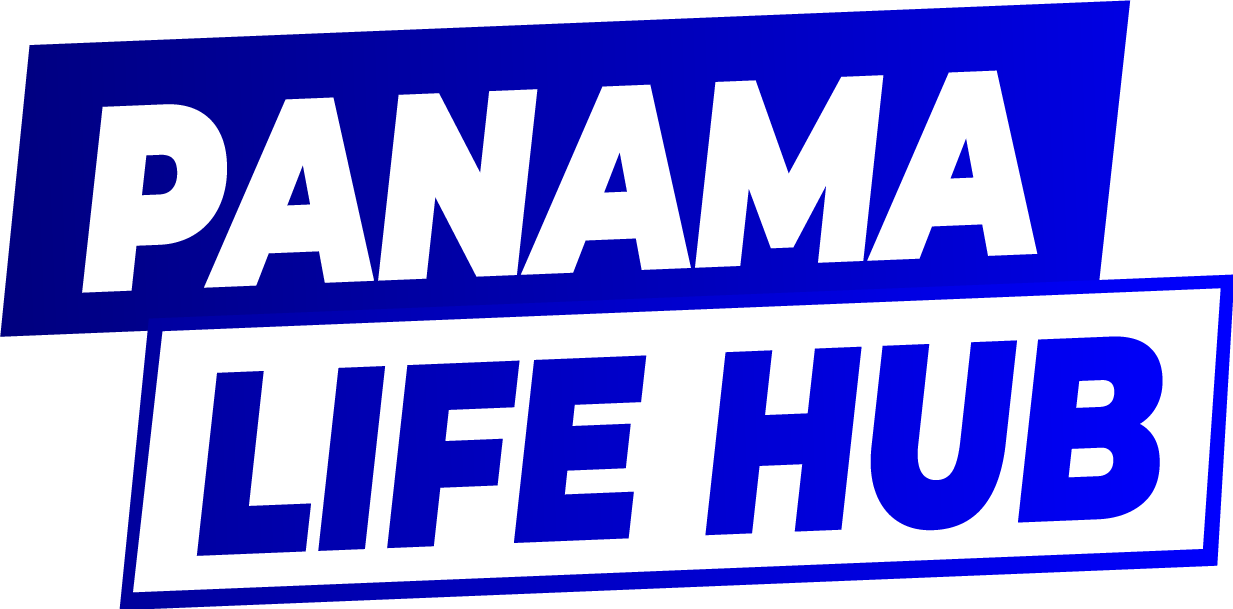
When expats talk about Panama’s healthcare system, most conversations stop at the same point: “public is slow, private is great.” That’s true, but it’s only half the story. Beneath the surface, there are nuances that most guides never cover — from the hidden strengths of the public system to the surprising costs of private care.
Based on expat experiences from 2020 to 2025, this article dives deeper into Panama’s healthcare system, so you can make decisions with real insight.
The Basics: A Dual System
Panama operates a dual healthcare system:
- Public healthcare through the Caja de Seguro Social (CSS) and MINSA clinics.
- Private healthcare in modern hospitals and clinics, mostly in Panama City.
On paper, it’s simple: locals rely on the public system, and expats overwhelmingly choose private. But reality is more layered than that.
Public Healthcare: More Than Just Long Lines
Most expats complain about endless waiting times, crowded facilities, and limited English in public hospitals. That’s all true. Yet seasoned residents have pointed out benefits that don’t get enough attention.
The “Safety Net” Nobody Talks About
Routine care in the public system can be frustrating, but when it comes to catastrophic treatments — such as dialysis, organ transplants, or long-term cancer care — the CSS is the only institution that can provide these at virtually no cost.
👉 One expat shared: “Don’t go to CSS for a cold, but don’t dismiss it either. It’s your ultimate safety net for treatments no private insurance would cover without bankrupting you.”
The Human Factor: Dedicated Doctors and Nurses
Despite limited resources, many expats describe public doctors and nurses as highly skilled and deeply committed. Their workload is heavy, but their professionalism often exceeds expectations.
👉 Advice from a retiree: “If you ever end up in the public system, be patient and respectful. The facilities may be outdated, but the medical expertise is first-class.”
Who Can Access the CSS?
Unlike private care, access to public healthcare is not automatic for foreigners. To qualify, you must:
- Have legal residency and a Panamanian ID card (cédula).
- Contribute to the social security system.
- If employed, your company registers you and deducts monthly contributions.
- If self-employed, you can apply to make voluntary contributions, but only after proving residency and income in Panama.
Without these requirements, expats cannot use CSS, which makes the private system the default option for newcomers.
Private Healthcare: Quality With Hidden Caveats
For everyday care, private healthcare is the go-to choice for expats. Modern hospitals, short waiting times, and English-speaking doctors make it easy and comfortable. But even here, expats have discovered a few surprises.
The “Luxury Cost” Factor
Consultations are cheap — often $30–$60 — but expats warn that complex procedures in luxury hospitals (like Punta Pacífica) can become very expensive. Extended ICU stays or major surgeries can approach U.S. prices if you don’t have robust insurance.
👉 A long-term expat put it simply: “Don’t assume everything is cheap just because the check-up was. Always ask about overnight hospital rates, and make sure your insurance covers serious procedures.”
Building Your Own Network of Specialists
In Panama, the concept of a “family doctor” is less common than in the U.S. Instead, expats recommend building a personal network of trusted specialists — a cardiologist, dermatologist, orthopedist, etc. This gives you more control and often better results.
👉 “Don’t waste time looking for one doctor who does it all. Find the right specialist for each need — it’s more work upfront but pays off long-term.”
New Prescriptions Are the Rule
Another common surprise: Panamanian doctors rarely accept foreign prescriptions at face value. They prefer to reassess your condition and issue a local prescription, valid in pharmacies.
👉 Advice from an expat with a chronic condition: “Bring your medical history, but expect to go through a new check-up. It’s not mistrust, it’s their way of ensuring the treatment fits local standards. In the end, it saved me pharmacy headaches.”
Comparing Public and Private Care
Instead of viewing it as “choose one or the other,” expats suggest seeing both as complementary:
- Use private care for routine check-ups, specialists, and planned treatments.
- Rely on public CSS as a last-resort safety net for catastrophic or long-term illnesses (if you qualify).
This balanced view helps manage costs and ensures coverage in scenarios where private insurance alone might fall short.
Public vs. Private Healthcare in Panama
For expats, one of the most important questions is whether to rely on the public healthcare system (Caja de Seguro Social and MINSA hospitals) or pay for private care. The answer often depends on your budget, residency status, and expectations.
Public Healthcare in Panama
- Extremely low cost, often just a few dollars for consultations.
- Covers catastrophic and long-term treatments such as dialysis or transplants.
- Overcrowded facilities, long waiting times, and limited English-speaking staff.
- Only available to legal residents who contribute to the social security system.
Private Healthcare in Panama
- Modern facilities, shorter wait times, and many English-speaking doctors.
- More expensive than public care, but still far cheaper than in the U.S.
- Hospitals like Punta Pacífica and The Panama Clinic offer world-class treatment.
- Direct billing is available if you have local or international health insurance.
👉 “I would never use the public system unless it was a life-or-death emergency. The private clinics are efficient, modern, and worth the cost.” – Expat testimony
👉 “Still, I keep my public insurance active, because if something catastrophic happens, the Caja de Seguro Social is the only option that covers it without bankrupting you.” – Expat testimony
Most expats rely on private care for their daily medical needs, but some keep public coverage as a backup for major emergencies. The smart strategy is often a combination of both
Practical Tips for Expats
- Secure insurance early. Local plans are affordable, but for retirees or those with chronic conditions, international insurance may be safer.
- Budget for emergencies. Even in private care, unexpected hospitalizations can be costly.
- Bring your documents. For chronic conditions, carry your medical history and lab results to your first appointment.
- Be patient. Whether public or private, healthcare in Panama often requires flexibility and persistence.
- Find a trusted doctor: This is the best investment you can make. Many expats recommend choosing a private general practitioner who speaks English and can manage referrals.
- Pharmacies and prescriptions: Bring your old prescriptions to your new doctor so they can issue a valid local version. Some medicines may only be available in generic form.
- Overcome language barriers: In public clinics, Spanish is necessary. In private hospitals, English is common. Learning basic Spanish still helps.
- Stay patient and flexible: As one expat explained, “The key is patience and finding the right doctor. Once you do, everything gets easier.”
Conclusion
The Panama healthcare system is not just a simple “public vs private” story. It’s a layered reality where each option has hidden strengths and weaknesses. For expats, the private system is usually the first choice, but the public CSS shouldn’t be dismissed entirely — especially as a safety net for life’s biggest medical challenges.
The smart expat approach: use private healthcare for convenience and quality, but understand the public system’s role as ultimate backup. Combine both with good insurance, and Panama’s healthcare becomes not just affordable, but reliable.
👉 Next step: Learn more in our complete guide to Healthcare in Panama.
FAQ: Public vs. Private Healthcare in Panama
Is public healthcare in Panama good?
Public healthcare in Panama offers very low-cost services, but wait times are long and facilities can be outdated. It is best for catastrophic coverage but not for everyday care.
Do expats have access to public healthcare in Panama?
Yes, but only if you are a legal resident and contribute to the social security system (Caja de Seguro Social). Tourists and temporary residents cannot access it.
Why do most expats choose private healthcare in Panama?
Private hospitals and clinics provide faster service, modern facilities, and English-speaking doctors. Although more expensive than public care, it is still far more affordable than in the U.S.
Can you combine public and private healthcare in Panama?
Yes. Many expats use private care for routine needs and keep public coverage as a safety net for major emergencies or long-term treatments.
